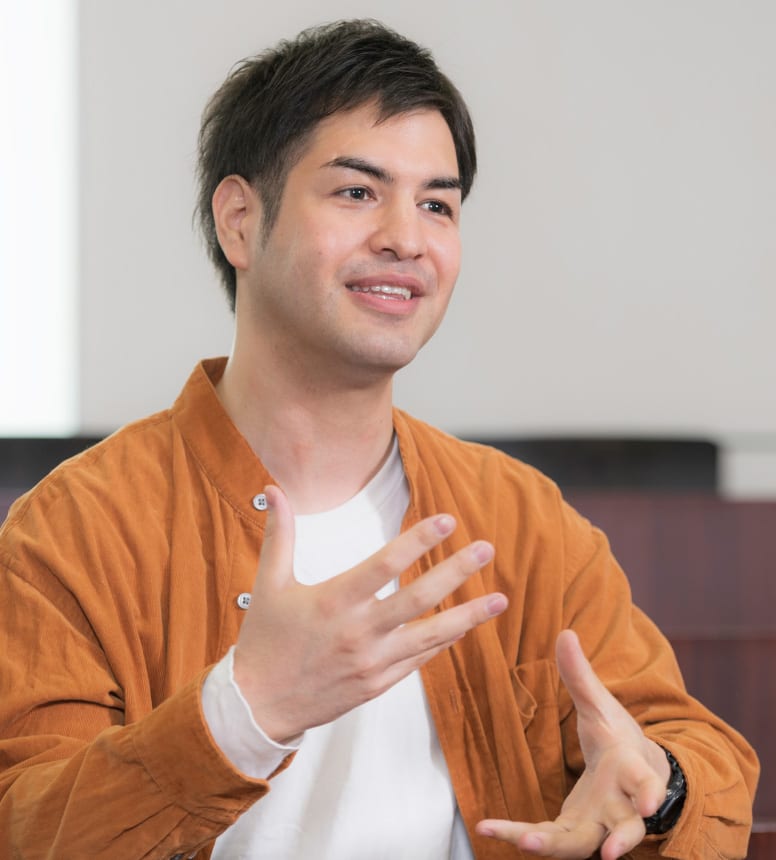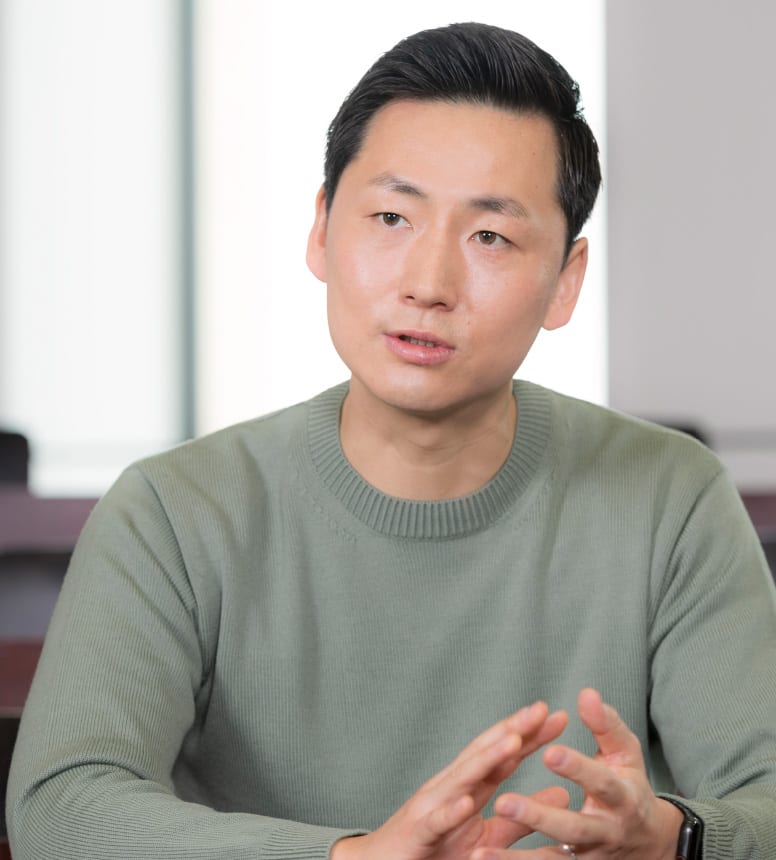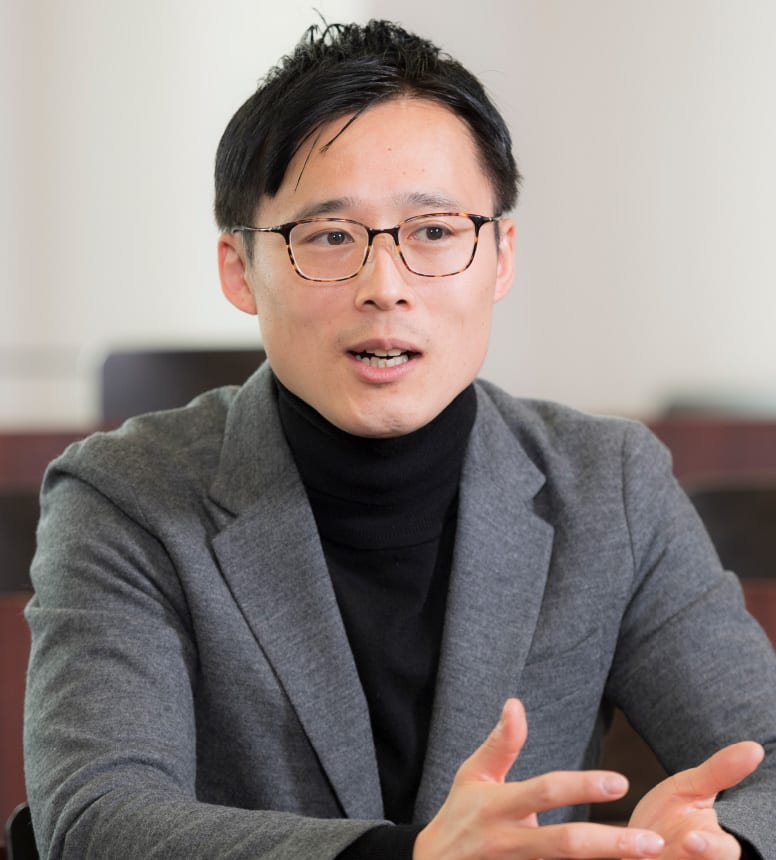Developing Careers Through the MBA Course
Q: Why did you decide to take an MBA course and why did you choose WBS?

Kentaro Takahashi, COO, Mirror Fit, Inc.
Takahashi: I was interested in business management because I have a relative who is running a company. After graduating I was working as a medical representative for a pharmaceutical company. But I had few opportunities to get involved in management and I became frustrated and uncertain about my future. I decided on the MBA to boost my chances of getting involved in management.
Masunaga: My story is similar to his. After graduating, I worked as a retail sales rep at major electronics maker Fujitsu Ltd. The job gave me many opportunities to think about corporate mergers and management. I gradually became uncertain and unhappy about my career as a sales rep. I decided to take an MBA course to expand the scope of my business-related knowledge and experience.
Yasunaga: I took the step out of necessity. I was responsible for lobbying and developing business strategy at Uber Japan Co., Ltd. The job involved frequent communications with business development teams at Uber’s headquarters in San Francisco and other overseas units. Almost all members of these teams had gotten their MBA from overseas schools like Harvard Business School. I was the only one without an MBA. I felt the need to learn the common business language and knowledge they had mastered at business schools as well as lobbying. That was why I decided on the MBA course. I chose WBS because I was acquainted with Professor Tatsuyuki Negoro[*1], who studies business platforms through Uber’s operations, and I wanted to study under him.
Takahashi: I researched a number of business schools and my decision to enroll at WBS was based on a comprehensive evaluation. WBS has a top-level faculty and offers courses to acquire highly practical and immediately useful knowledge about business administration. When I visited WBS and attended a trial lesson by Professor Tomoko Kawakami[*2], I was overwhelmed by the level and quality of the class. Another factor that made WBS particularly attractive for me was that there were 300 students in the same year, which meant I would have many opportunities to meet people and build a large network of personal connections.
Masunaga: I had a younger friend from my university who had already earned an MBA from WBS and he strongly recommended the school, saying, “You should absolutely go to WBS.” My friend recommended WBS for the same reasons Takahashi mentioned. He stressed that WBS had a better faculty and offered more opportunities to build a network than any other business school in Japan. I had mixed feelings about following the path of a younger university friend, but my decision turned out to be a right one.
*1: Professor Tatsuyuki Negoro, who graduated from Kyoto University with a B.A. in sociology, is an expert in management strategy, IT strategy and innovation. Negoro also earned an M.B.A. in general management from Keio University. The academic and business positions he held during his career include visiting research fellow at the University of Hull in Britain, vice president of the CRM Forum JAPAN, a research adviser for Fujitsu Research Institute, president of the Japan Society for Management Information and vice president of the International Academy of CIO Japan.
*2:Professor Tomoko Kawakami, who received her M.B.A. in Business Administration from Osaka University and a Ph.D. in Marketing from Kobe University, is an expert in marketing and innovation. Before joining WBS, she was professor of Kansai University and an affiliate professor of Forster School of Business at the University of Washington. She also serves as executive director for Japan Marketing Academy, a member of the Editorial Board of the Journal of Product Innovation Management and an outside director for Takara Holdings Inc.








